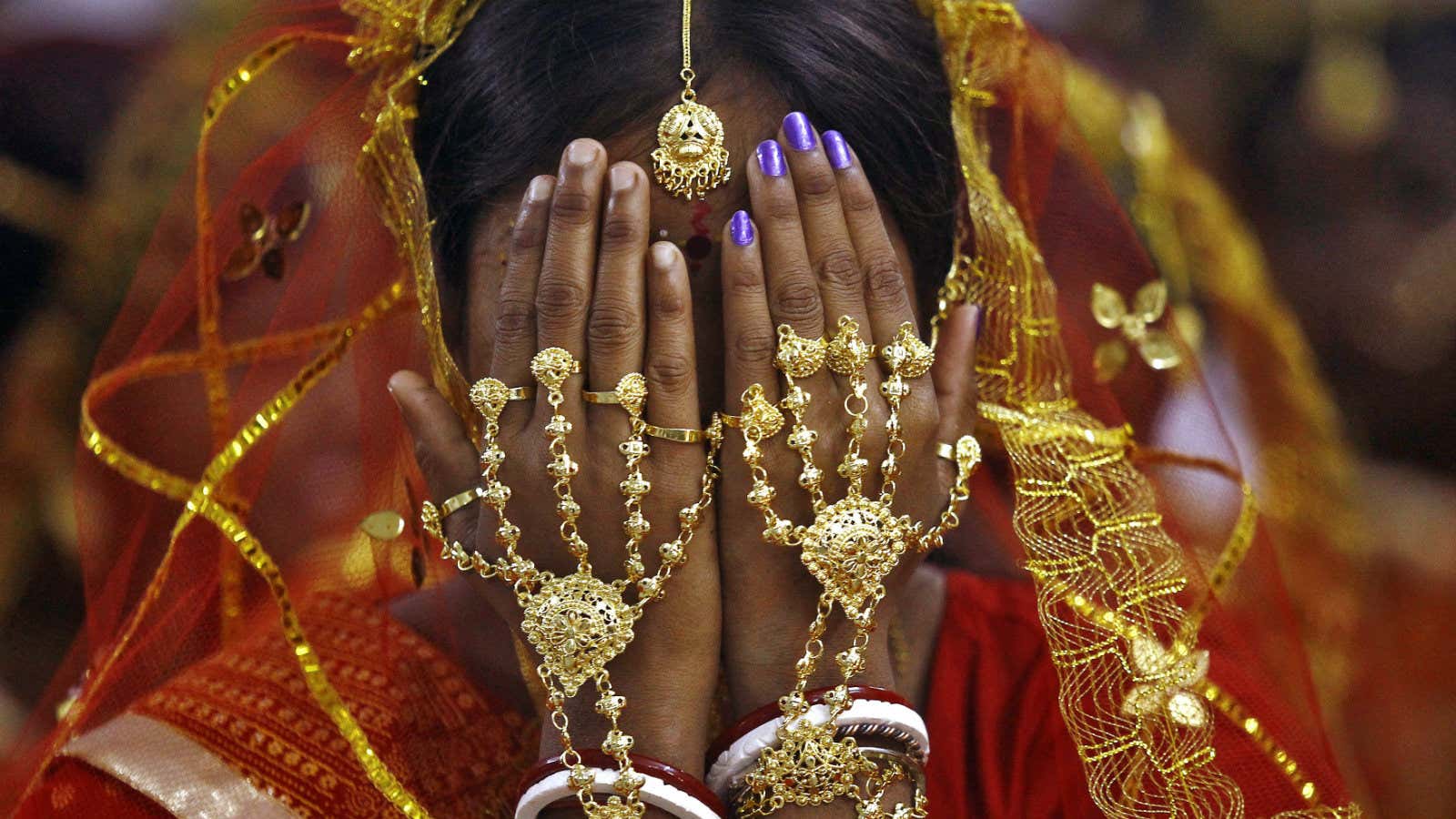The Indian government may soon start acting like a pesky grandmother.
The country plans to set up regulations to ensure that matrimonial websites are not used by those who don’t intend to get married. Users of such sites will be required to verify their identities to ensure that the service is not being misused for casual dating, Bloomberg reported. They will need to share details of any government-recognized identity proof.
Matrimonial websites will also be asked to keep records of IP addresses of users.
“We have approved the standards to check the cheating on such websites,” said communications and information technology minister Ravi Shankar Prasad. “Women and child development minister Maneka Gandhi was actively pursuing the matter. Since it was related to IT Act, our ministry approved this today.”
Matrimonial websites have been very popular in India for over a decade, long before the advent of dating apps. India has over 1,500 matrimonial websites, and the industry is estimated to generate Rs1,500 crore ($223 million) in revenue by 2017.
These websites are typically used to find a match with clearly stated intentions of marriage. There are, however, instances where users hook up for casual relationships instead of tying the knot.
Like dating apps, matrimonial websites use data analytics to match profiles, using criteria such as caste and religion, which are important factors in Indian arranged marriages. A 2013 survey by global market research company Ipsos found that 74% of Indians between 18-35 years old prefer an arranged marriage. Some reports have said that as many as 90% of the marriages in India are arranged.
The Indian government has been trying to regulate matrimony websites for some time. Last November, the women and child development ministry (WCD) had set up a panel to work on a regulatory mechanism to stop “fraudsters” on matrimonial websites. The panel included officials from the WCD, home ministry, department of IT, and representatives from major matrimonial websites like Shaadi.com and Jeevansaathi.com.
“We want to make it clear that these portals are not dating websites,” an unnamed WCD official told The Indian Express. ”The ministry has been receiving complaints regarding various kinds of frauds on such sites, from exploitation of women to people conning victims through fake profiles of prospective grooms.”
Shaadi.com and Jeevansaathi.com, two of the leading matrimonial portals in India, did not reply to email queries about the new proposed regulation.
Dating apps are increasingly becoming popular given that half the 1.25 billion Indian population is less than 25 years old. US-based Tinder, launched three years ago in India, opened its first international office in Delhi in January this year. Tinder founder and CEO Sean Rad has said India could become a “core market” for the company.
